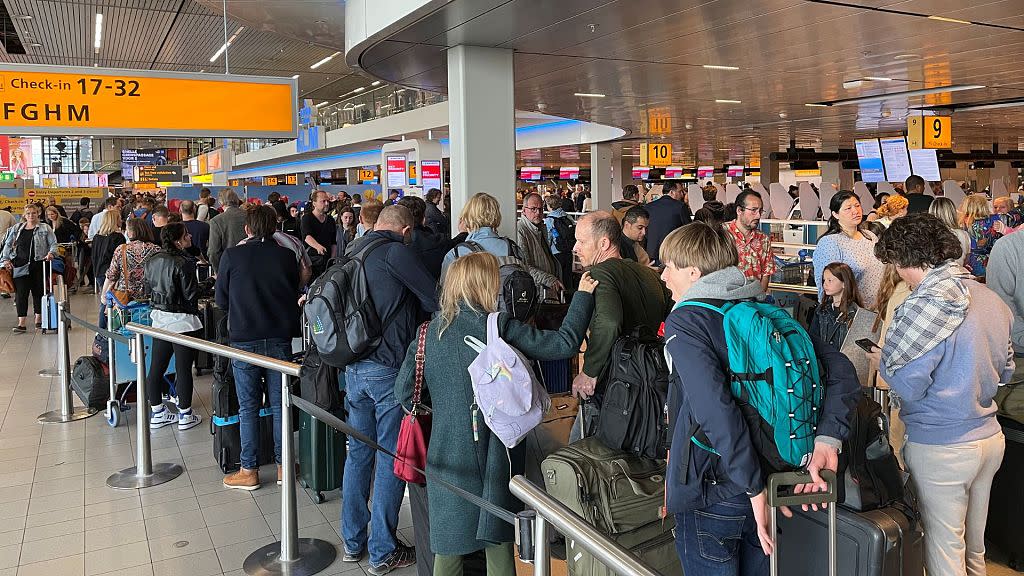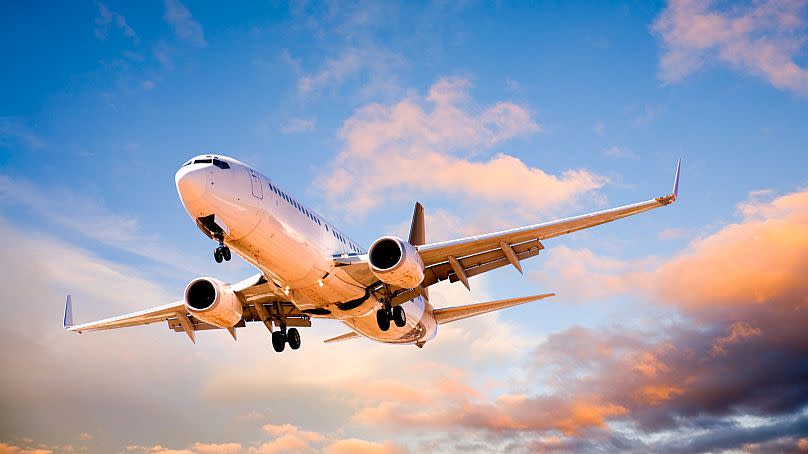Half of all European flights were delayed last summer. Which airports were the worst - and best?

Half of flights in Europe were delayed last summer and nearly 2,000 were cancelled every day in 2022, a new report reveals.
The data - released by European air traffic management body Eurocontrol - will come as no surprise to travellers, many of whom endured long queues and last-minute cancellations throughout 2022.
Two thirds of flights departed on time throughout the year - a significant decrease on the 2019 average of 73 per cent.
But “the situation deteriorated markedly over the summer,” the report reads.
“Departure punctuality [dipped] below 50 per cent at the beginning of July and between 50 per cent - 60 per cent for most of the summer,” Eurocontrol concludes.
Hundreds of thousands of flights were also cancelled. Roughly 6.9 per cent of all scheduled trips were grounded - nearly double the 2019 average of 3.5 per cent.
But not all European countries and airports fared equally.
How are European airports and airlines hoping to avoid a repeat of this summer's travel chaos?
Thousands of US flights delayed following major FAA computer system failure
Which airports had the most delayed departures in 2019?
Eurocontrol has ranked the largest 20 European airports on their arrival and departure punctuality.
Lisbon and Frankfurt saw the lowest rates of on time departure among Europe’s biggest airports. Just over half (54 per cent) of flights departed Lisbon punctually and 56 per cent from Frankfurt.
In third place for punctuality was Paris CDG, which was affected by strikes last summer, where 56.8 per cent of flights left on time. London Gatiwck came in fourth with 57.5 per cent of flights leaving on time.
London Heathrow and Amsterdam Schiphol round out the bottom six, both also with departure punctuality rates worse than 60 per cent.
At the other end of the ranking, Oslo and Madrid top the list in both arrival and departure punctuality.
81 per cent of flights departed on time at Madrid Barajas, while 77.2 per cent did so in Oslo.

Which countries were particularly bad for delays?
The Eurocontrol report also ranked countries on their air traffic control delays. Air traffic control is not the total delay, but is a “very significant” one as it measures added time before takeoff caused by air traffic control shortages.
Air traffic is not spread evenly across Europe. The UK is the busiest air traffic control hub, followed by Germany, Spain, and France. Yet the busiest countries were not necessarily the worst affected.
The UK and Spain together accounted for just 12 per cent of total air traffic control delays.
Germany, on the other hand, accounted for nearly a third (30 per cent) of all delays. This is largely due to the poor function of Germany’s Karlsruhe air traffic control area, where delays are up 165 per cent on 2019.
France also scored poorly, notching up 21 per cent of Europe’s delays.
Want to travel more sustainably in 2023? We asked flight-free travellers how they do it
Which two EU countries are battling for the title of world’s most visited destination?
Why were delays so bad over the summer?
Staff shortages were the main cause of the chaos. Many thousands of aviation workers were made redundant during the COVID pandemic, so airlines and airports struggled to deal with a sudden surge in the number of travellers last year.
The war in Ukraine also minimised available airspace, the Eurocontrol report indicates.
“The closure of Russian airspace meant a significant amount of longer rerouteings, while increased military usage of European airspace disrupted usual traffic flows,” it reads.
It estimates 650 flights a day were forced to take more southerly routes because of the war in Ukraine.

 Yahoo News
Yahoo News 
